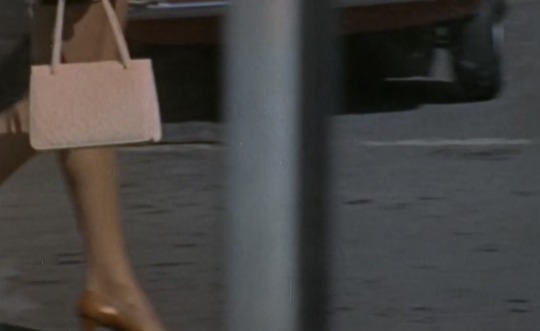#f for fake
Text
F For Fake, Orson Welles, 1973
88 notes
·
View notes
Text
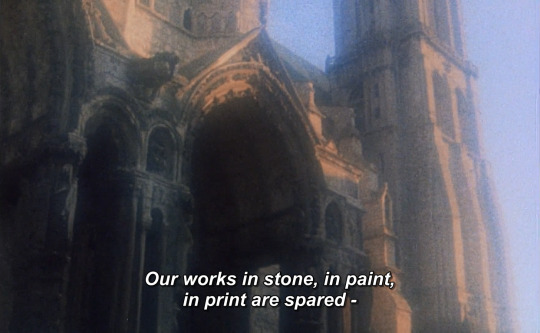


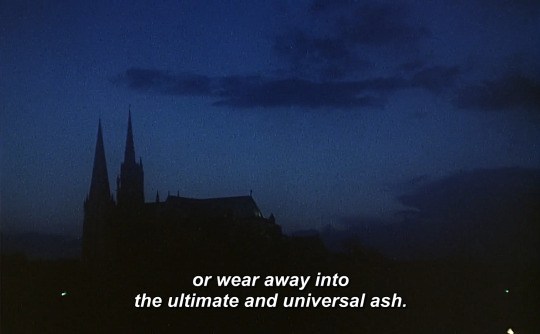

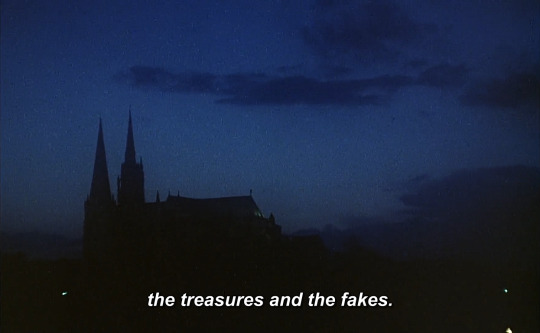



F for Fake (1973)
89 notes
·
View notes
Photo
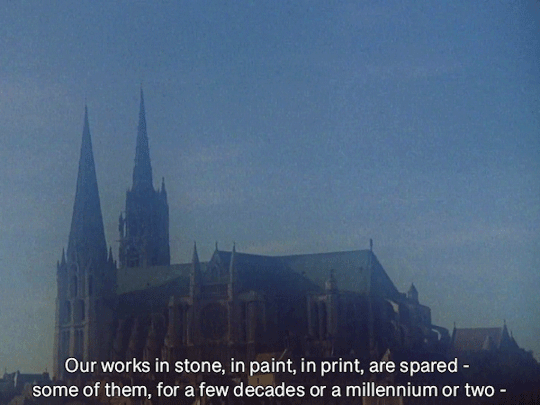
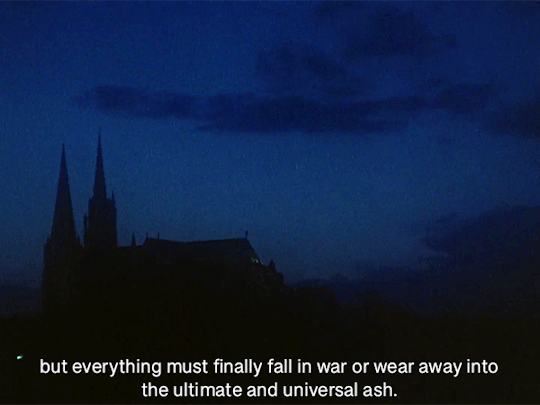
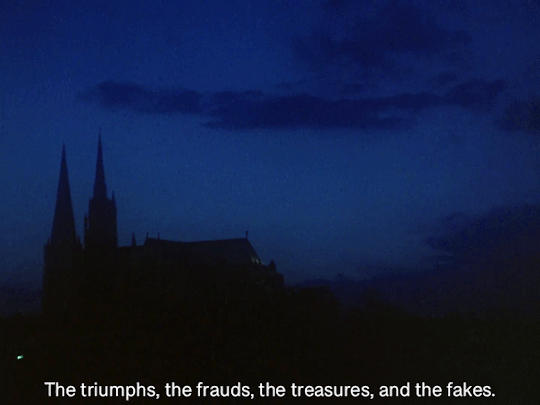


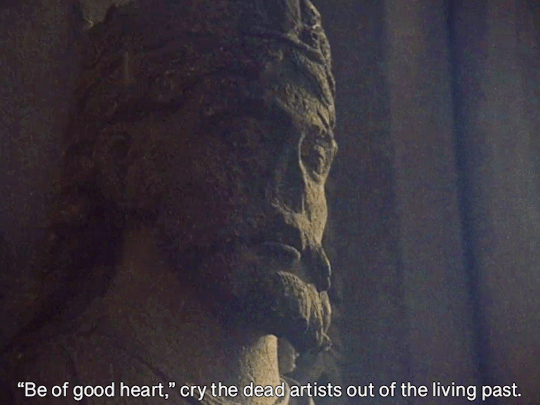
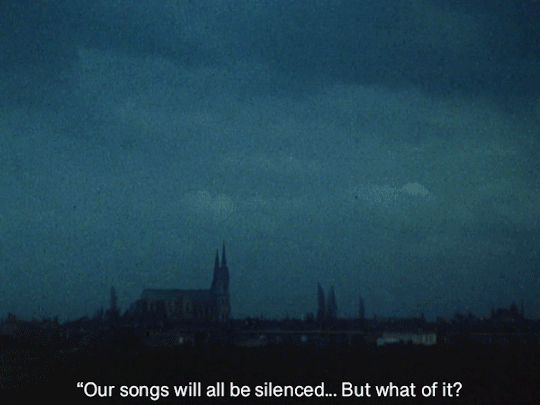

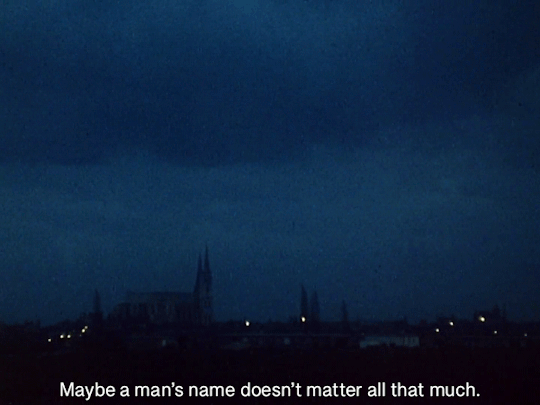
F for Fake dir. Orson Welles (1973)
384 notes
·
View notes
Text

19 notes
·
View notes
Text
Well, it may be a few days late, but it's here! One of my favorite new year traditions: my ten favorite new-to-me films of 2022!
This year was particularly challenging for me, but we made it through, and thanks in no small part to these beautiful films. They're wildly different, but they all moved me and got under my skin in ways I couldn't shake, so please consider this a strong endorsement for each of them!
The same rules as always: no movies from this past year (2022) or the year prior (2021). Every other year is fair game.
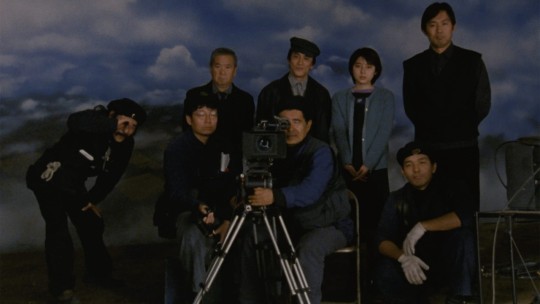
01. After Life (dir. Hirokazu Kore-eda, 1998; Japan; 119 mins.)
“I was part of someone else’s happiness.”
It starts with a great premise: After death, people get one week to select one memory from their lives to hold onto for the rest of time. I knew I was always going to love After Life because I tend to love Kore-eda’s films. This is almost certainly his most compassionate film (which is saying something, considering compassion is pretty much his whole deal), and, as usual for him, the actors all give terrific performances. What I wasn’t anticipating was how much After Life ends up being, of all things, a love letter to dramaturgy. It goes back to the film’s very premise. The memory people keep forever isn’t really their memory – not exactly anyway. It’s a performance, a reenactment painstakingly crafted and filmed by the people who work in this bardo. When the client selects their memory, the storytellers begin building it as a narrative, as something with a script and a clear arc. I can imagine some people finding this to be depressing, but it almost sounds like my dream job.
Side note: I watched this film about a week before my birthday, and at the time I was also playing a lot of the gorgeous video game Spiritfarer on Nintendo Switch, which is all about ferrying wayward souls to the other side. Turns out my capacity for cosmic yearning and spiritual angst knows no bounds.
After Life is currently streaming on the Criterion Channel.
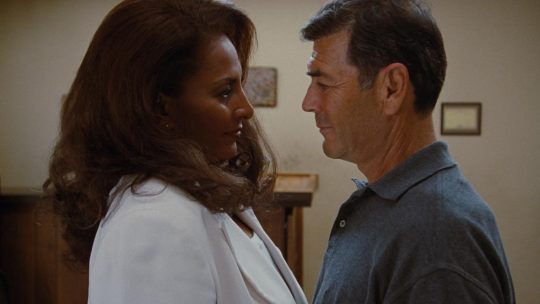
02. Jackie Brown (dir. Quentin Tarantino, 1997; USA; 154 mins.)
“I’ll send you a postcard.”
Tarantino is a hit-or-miss filmmaker like no other for me, but holy cow, y’all, when he hits, he hits. Everything about Jackie Brown comes together as gracefully as possible, and it’s stunning, frankly, that it was only Tarantino’s third feature. It’s pulpy, it’s twisty, it climaxes with as thrilling a sting as I’ve ever seen, and every scene – every second, really – feels effortless. To watch Jackie Brown is to feel safe in the hands of a storyteller at the top of their craft. Since I’m a sap, it helps that this is most likely his most tender film: every character is so well-drawn and well-realized, and every actor is doing great work (Bridget Fonda, Micheal Keaton, a weirdly against-type Robert De Niro), but the film’s three leads turn in career-best performances. Pam Grier makes Jackie a heroine for the ages, Samuel L. Jackson is a terrifying and magnetic tour de force, and Robert Forster, the heart of the film, is breathtakingly decent in a typhoon of violence and crime. The three performances, rich enough on their own, are at their best when they’re sharing the screen. It’s nothing short of electrifying.
Jackie Brown is currently available on demand.

03. Barry Lyndon (dir. Stanley Kubrick, 1975; UK/USA; 185 mins.)
“Good or bad, handsome or ugly, rich or poor, they are all equal now.”
I’m glad I finally crossed Barry Lyndon off my watchlist, even if it’s clearly the kind of film that rewards multiple viewings. Kubrick’s meticulous world-building has rarely been more accomplished or authentic than it is here. The sprawling world of Barry Lyndon stretches beyond the edges of the screen, with a huge cast of great character actors giving superb performances. The film’s legendary design work is every bit as staggering as its reputation suggests: John Alcott’s jaw-dropping cinematography, Ken Adam and Roy Walker’s extravagant art direction, and Milena Canonero and Ulla-Britt Söderlund’s gorgeous costumes. It’s also surprisingly funny! A genuinely magnificent piece of work from a master filmmaker.
Barry Lyndon is currently streaming on HBO Max.

04. F for Fake (dir. Orson Welles, 1973; France/Iran/West Germany)
“Our songs will all be silenced. But what of it? Go on singing.”
At least 80% of F for Fake is footage of Orson Welles stream-of-consciousness monologuing about art and culture and history and making himself chuckle in different fields and parks and cafés while wearing little hats and jackets. Naturally, I loved it. A strange, poetic, and fascinating magic trick of a film, further proof that Welles was truly in a class of his own as a storyteller, a filmmaker, an illusionist, and a self-made myth. What a gift.
F for Fake is currently streaming on HBO Max and the Criterion Channel.

05. There Was a Father (dir. Yasujiro Ozu, 1942; Japan)
“There’s nothing to be sad about.”
Yasujiro Ozu is rightly regarded as one of the world’s greatest filmmakers, but I’ve long had a pet theory that he was one of the great dramatists of the 20th century. All of his films play out as carefully plotted chamber dramas, their enormous emotional power hidden in the smallest, most subdued interactions between its characters. There Was a Father is as bleak and beautiful as any of Ozu’s films, and maybe the most gutting. At the heart is frequent Ozu collaborator Chishu Ryu, who gives a stoic, honest, and shattering performance as a man whose worldview left him detached from his family and emotionally numb. It’s hard to imagine this being approved by the Japanese national censors during World War II, but thank goodness we have it.
There Was a Father is currently streaming on the Criterion Channel.

06. Betty Tells Her Story (dir. Liane Brandon, 1972; USA; 20 mins.)
“I guess I still haven’t solved the way I felt about that. The uncomfortableness of being praised for a prettiness I never had, but, you know, kind of excitement about feeling very special suddenly. And it’s gone.”
A short masterpiece of solo storytelling. Liane Brandon fixes her camera on Betty, who recounts a story about buying and losing an expensive dress to wear to a gala. She tells the same story twice – once for the factual sequence of events and once to describe the way she felt as it was happening – and the contrast is amazing to watch. Wherever Betty went after telling Brandon her story, I hope she was happy. Betty Tells Her Story was just inducted into the National Film Registry, ensuring this devastating, empathetic, monumental piece of filmmaking can be preserved forever. Thank God for that.
Betty Tells Her Story is currently streaming on the Criterion Channel.
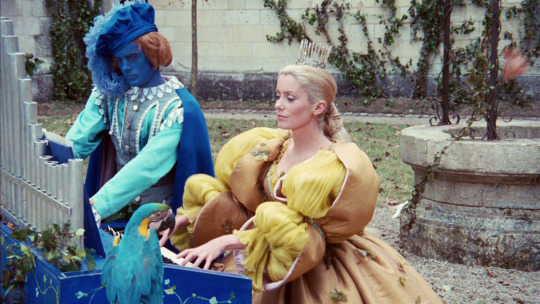
07. Donkey Skin (dir. Jacques Demy, 1970; France; 90 mins.)
“Donkey Skin! What a beautiful name.”
What a treat. Donkey Skin easily stands alongside Jacques Demy’s earlier musicals The Umbrellas of Cherbourg and The Young Girls of Rochefort as some of the most blissful films in the genre. As with his other films, the production values are off the charts, including some truly outrageous costumes, and an exquisite score from Demy’s frequent collaborator Michel Legrand. The cast is great, too, including the always magnetic Catherine Deneuve, an endearingly goofy Jacques Perrin, a brooding Jean Marais, and high-camp MVP Delphine Seyrig. The humor is delightfully weird, it looks and sounds amazing, and there are a handful of truly inspired musical sequences. It’s a magical film.
Donkey Skin is currently streaming on the Criterion Channel.
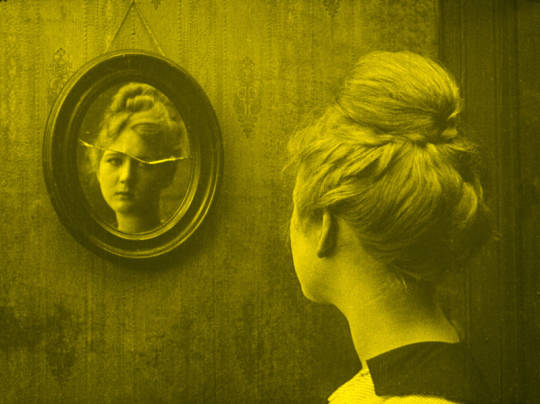
08. Shoes (dir. Lois Weber, 1916; USA; 50 mins.)
“Whatever happened, life must go on. Whatever boats are wrecked, the river does not stop flowing to the sea.”
Lois Weber’s Shoes must be one of the most affecting melodramas in Hollywood history. Anchored by Weber’s beautiful direction and a haunting performance from twenty-year-old Mary MacLaren, the film becomes something of a neorealistic fable in its depiction of an impoverished young woman doing whatever she can to get enough money to buy a much-needed new pair of shoes. The characters feel authentic and Weber’s depiction of poverty is unflinchingly raw, but the simplicity and intimacy of the film are its strengths. A landmark American film.
Shoes is currently streaming on the Criterion Channel.

09. Edward II (dir. Derek Jarman, 1991; UK; 90 mins.)
“My father is deceased. Come Gaveston, and share the kingdom with thy dearest friend.”
A transgressive, furious film that beautifully draws parallel lines between the late 80s and early 90s and Marlowe’s source material. Everything about Jarman’s Edward II is bleak as hell, boldly queer, and utterly fascinating: Tilda Swinton playing a spurned sociopathic queen in elaborate costumes! Men screaming in the pouring rain! The realm everyone fighting and dying for being a pitch-black labyrinth of concrete! What’s lasted for me, though, is the utterly stunning sequence where Annie Lennox(!) sings Cole Porter’s “Ev’ry Time We Say Goodbye” while Edward and Gaveston part ways. A beautiful puzzle of a film.
Edward II is currently available on demand.
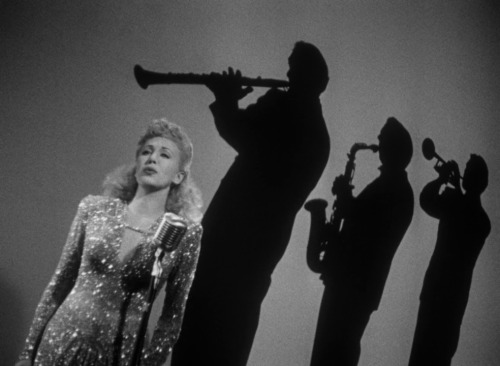
10. Detour (dir. Edgar G. Ulmer, 1945; USA; 66 mins.)
“That’s life. Whichever way you turn, Fate sticks out a foot to trip you.”
This is one lean, nasty noir. Clocking in at just over an hour, Detour is a relentlessly paced and relentlessly mean thriller, one that puts a fittingly mopey Tom Neal in a runaway car in the opening minutes and never, ever lets up. He’s joined (if not supported) by Ann Savage, who gives a truly venomous performance, practically spitting every lethal line she has. It’s bleak, it’s powerful, and it’s gorgeous in its own hellish way. I’ve never connected with film noir quite as much as I would like to, but this is as perfect an example of the genre as I’ve ever seen.
Detour is currently streaming on the Criterion Channel and Prime Video.

Honorable mentions (in alphabetical order): At Land (dir. Maya Deren, 1944); Bright Star (dir. Jane Campion, 2009); Brown Sugar (dir. Rick Famuyiwa, 2002); The Cameraman’s Revenge (dir. Ladislas Starevich, 1912); Cops (dir. Buster Keaton & Edward F. Cline, 1922); Daybreak Express (dir. D.A. Pennebaker, 1953); The Dover Boys at Pimento University (dir. Chuck Jones, 1942); A Fish Called Wanda (dir. Charles Crichton, 1988); Full Metal Jacket (dir. Stanley Kubrick, 1987); Inside Man (dir. Spike Lee, 2006); Inspiration (dir. Karel Zeman, 1949); Ivan’s Childhood (dir. Andrei Tarkovsky, 1962); La Ciénaga (dir. Lucrecia Martel, 2001); The Last of Sheila (dir. Herbert Ross, 1973); Les Diaboliques (dir. Henri-Georges Clouzot, 1955); Les Vampires (dir. Louis Feuillade, 1915); McCabe & Mrs. Miller (dir. Robert Altman, 1971); The Meetings of Anna (dir. Chantal Akerman, 1976); Nitrate Kisses (dir. Barbara Hammer, 1992); Pépé le Moko (dir. Julien Duvivier, 1937); Police Story (dir. Jackie Chan, 1985); Portrait of Jason (dir. Shirley Clarke, 1967); Postcards from the Edge (dir. Mike Nichols, 1990); Pyaasa (dir. Guru Dutt, 1957); Reluctantly Queer (dir. Akosua Adoma Owusu, 2016); The River (dir. Jean Renoir, 1951); The Secret of Roan Inish (dir. John Sayles, 1994); The Slumber Party Massacre (dir. Amy Holden Jones, 1982); Speed (dir. Jan de Bont, 1994); The Story of a Three-Day Pass (dir. Melvin Van Peebles, 1967); 13th (dir. Ava DuVernay, 2016); Wasp (dir. Andrea Arnold, 2003); You Were Never Really Here (dir. Lynne Ramsay, 2017)
And finally, some miscellaneous viewing stats:
First movie watched in 2022: Bright Star (dir. Jane Campion, 2009)
Final movie watched in 2022: The Thin Man (dir. W. S. Van Dyke, 1934)
Least favorite movie: Garden State (dir. Zach Braff, 2004)
Oldest movie: Cinderella (dir. Georges Méliès, 1899)
Longest movie: Les Vampires (dir. Louis Feuillade, 1915 – 422 mins.)
Shortest movie: Western Spaghetti (dir. PES, 2008 – 2 mins.)
Month with most movies: December (26)
Month with fewest movies: April (8)
First movie from 2022 seen: Turning Red (dir. Domee Shi, 2022)
Total movies: 190
Yay! Movies are good sometimes! Good stuff!
#year in review#sometimes elliott watches movies#after life#hirokazu kore-eda#jackie brown#quentin tarantino#barry lyndon#stanley kubrick#f for fake#orson welles#there was a father#yasujiro ozu#betty tells her story#liane brandon#donkey skin#jacques demy#shoes#lois weber#edward ii#derek jarman#detour#edgar g. ulmer
53 notes
·
View notes
Text



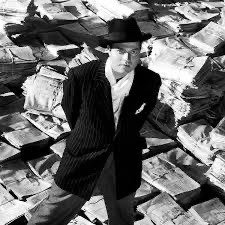






Happy Birthday in the afterlife to the one and only, Orson Welles!
#orson welles#citizen kane#touch of evil#chimes at midnight#macbeth#the magnificent ambersons#the lady from shanghai#the other side of the wind#the trike#f for fake#the stranger#the third man#movies#casino Royale
61 notes
·
View notes
Photo
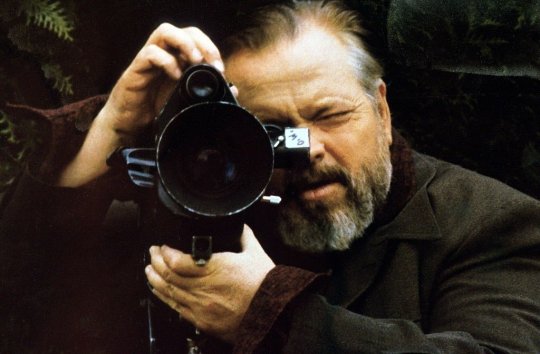
Orson Welles on set of ‘F for Fake’ (1973)
52 notes
·
View notes
Text

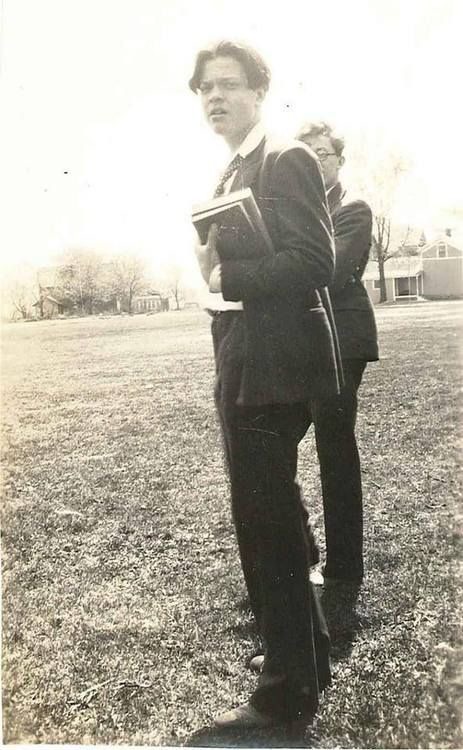
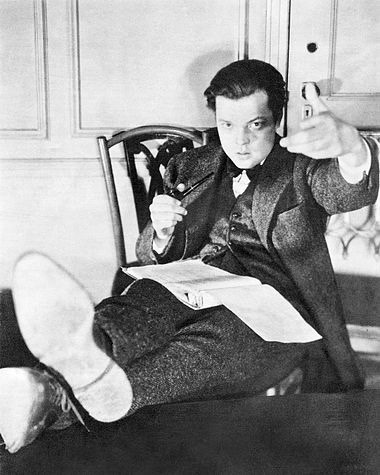
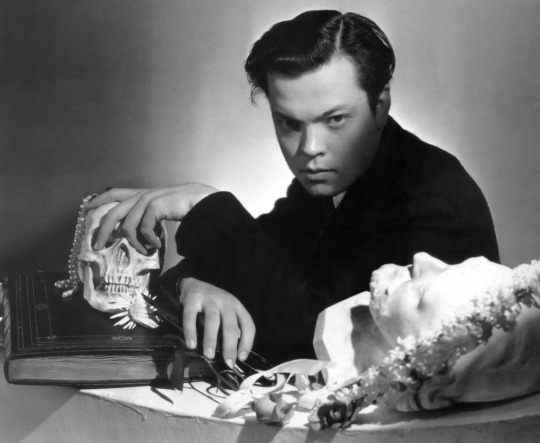
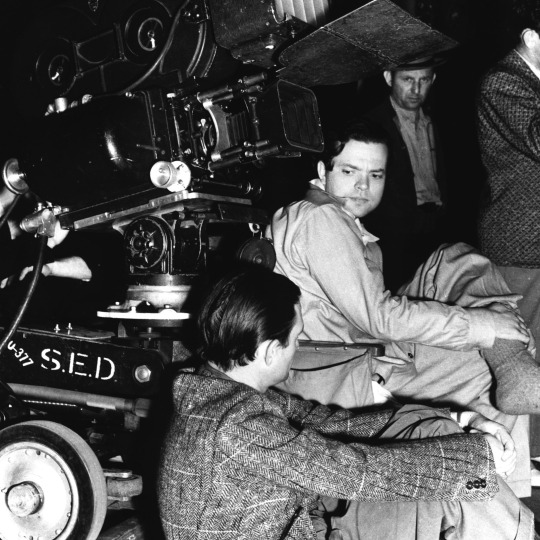

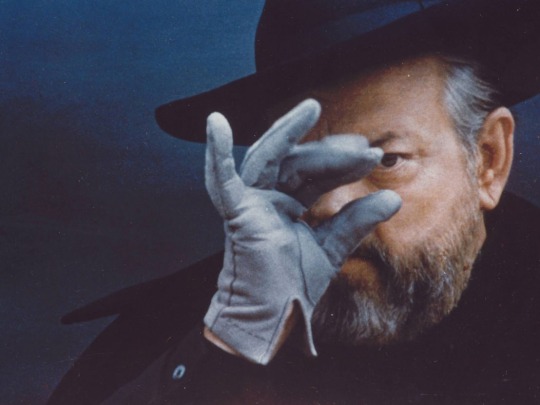

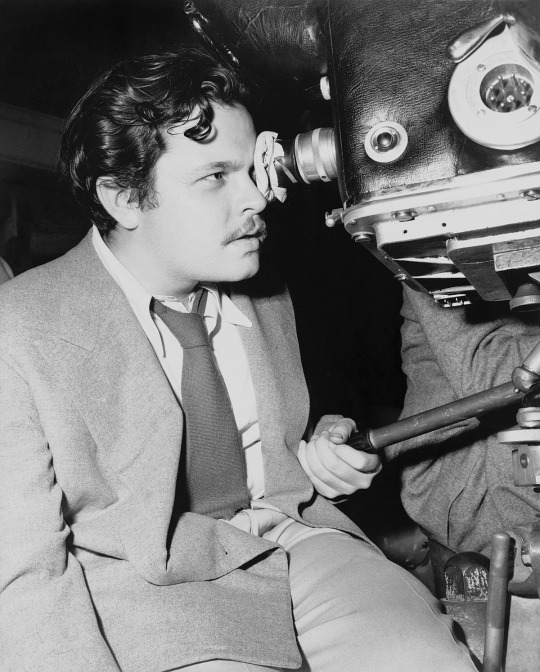
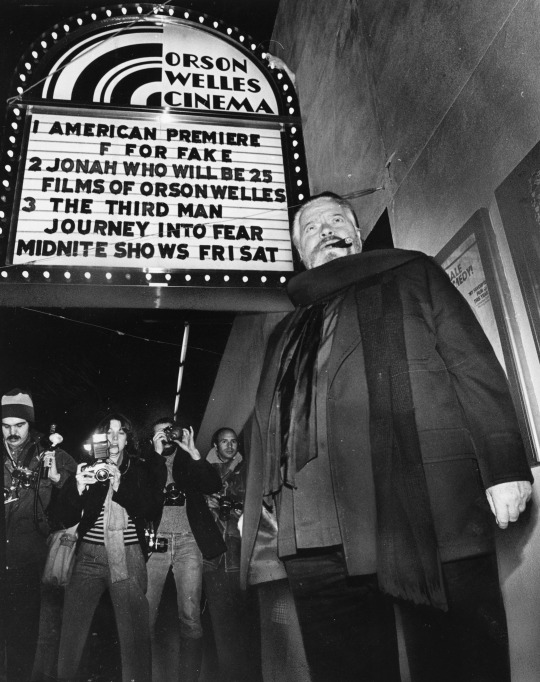
Happy Birthday Orson Welles!
Born: May 6, 1915
Died: October 10, 1985 (age 70)
#Orson Welles#celeb birthdays#cult actor#cult film director#Citizen Kane#F for Fake#Orson Welles Cinema
36 notes
·
View notes
Text
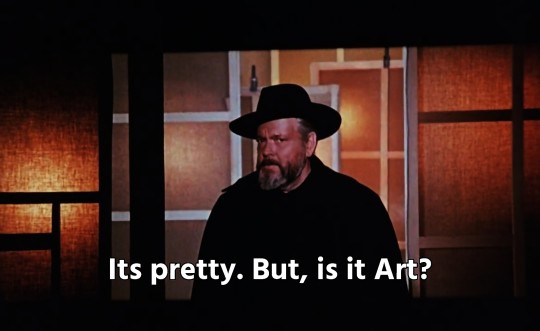
Orson Welles, F For Fake, 1973
36 notes
·
View notes
Text
3 notes
·
View notes
Text
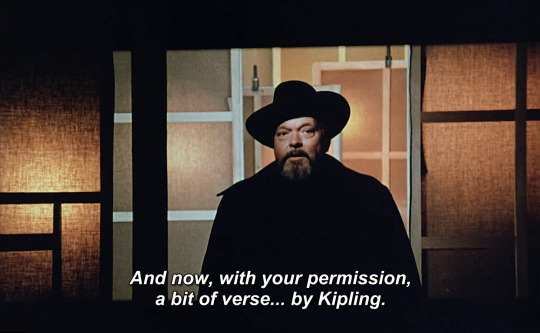


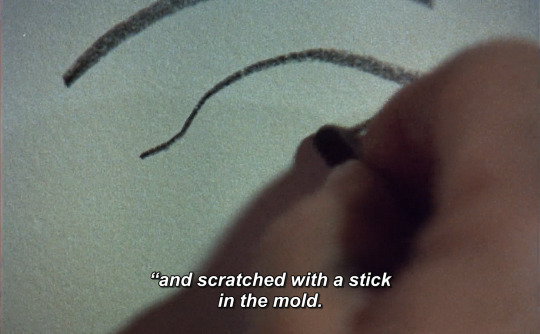
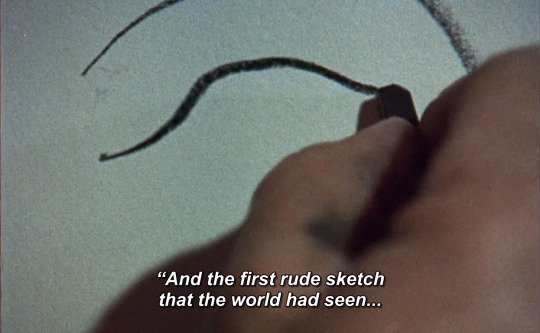



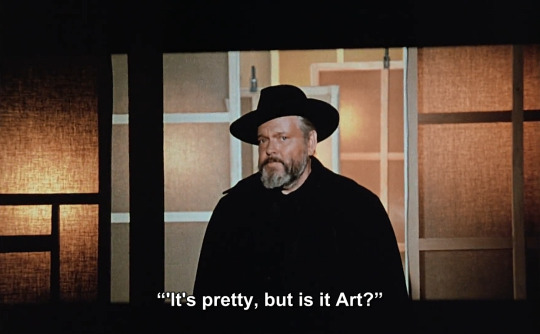
F for Fake (1973)
17 notes
·
View notes
Photo

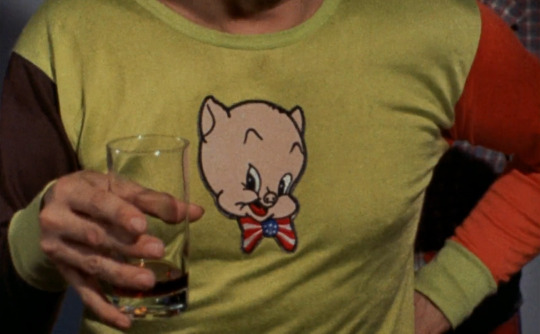
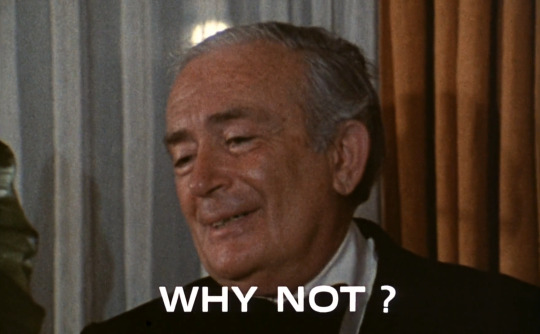
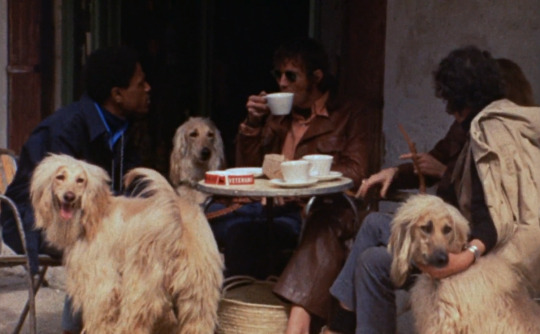
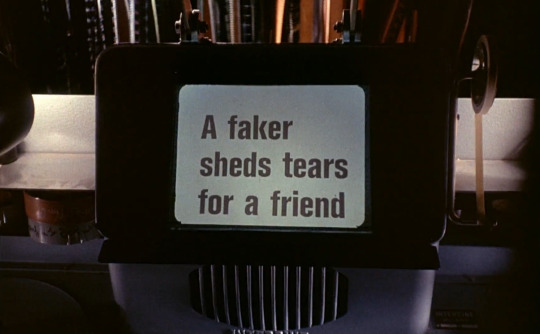
F for Fake dir. Orson Welles (1973)
41 notes
·
View notes
Text
New Transformers movie has Unicron.
I got bored so I edited Orson's voice to sound like Unicron in F For Fake for the Chartres clip.
Unicron was Orson Welles' last acting role.

As an aside, watch F For Fake, it's a very good movie.
#transformers#orson welles#unicron#voice edit#F For Fake#edit#pitch modulation#transformers rise of the beasts#transformers the movie#chahleybros#beast wars#transformers edit#film edit#movieedit#rise of the beasts#transformers g1
5 notes
·
View notes
Text

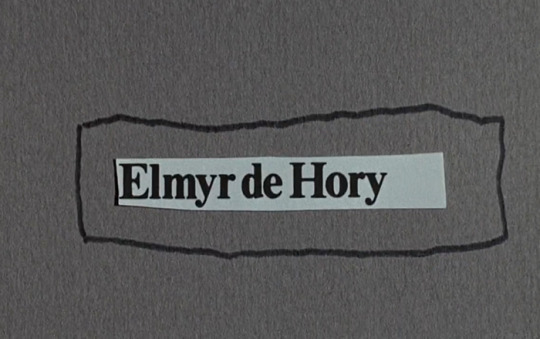
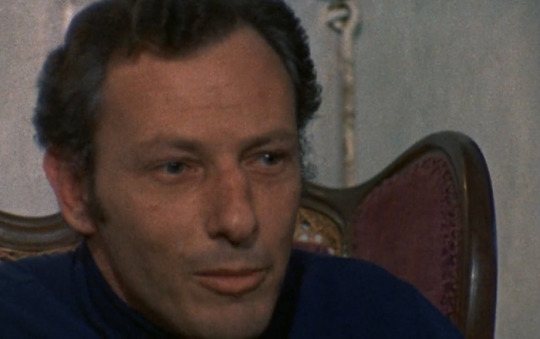


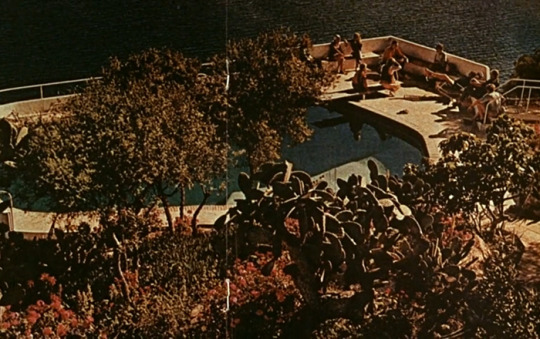

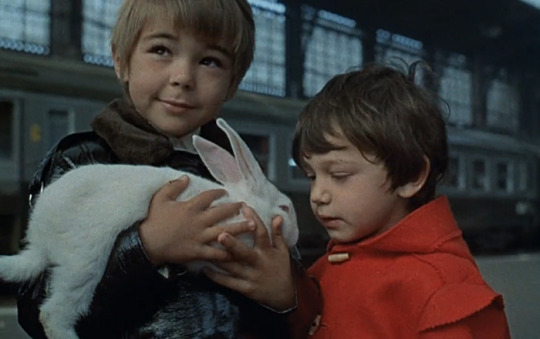
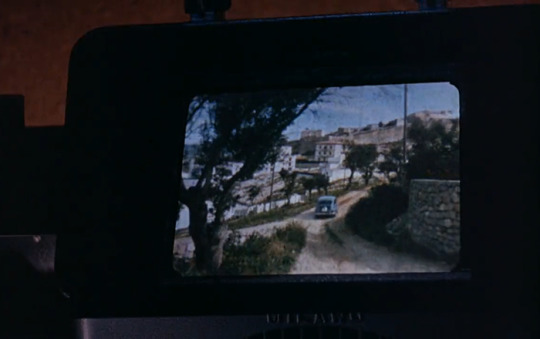
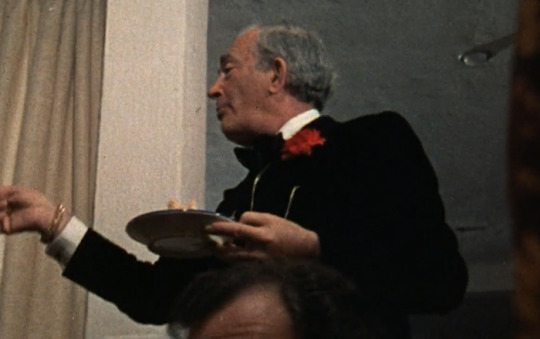
F for Fake
Orson Welles
France/Iran/West Germany, 1973
★★★★★
There are a few "documentaries" featuring Welles talking about his own work. I'd love to watch him talk about this one: how did he get to the story, how did the whole thing start, what happened when all the twists and turns just kept popping up, and more. What a mind boggling experience that must've been.
0 notes

